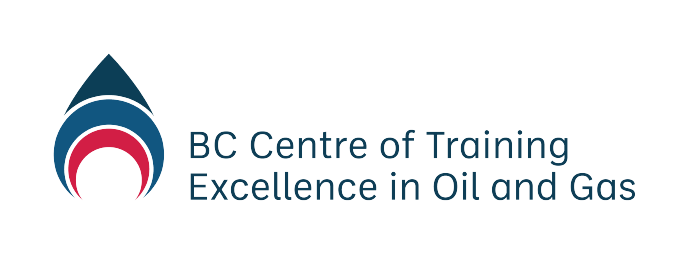-
Module 2.0 How to be Successful in this Course
-
Module 2.1 Introduction to Natural Gas
-
Module 2.2 The Natural Gas Industry in British Columbia
- Overview
- Learning Outcomes
- Natural Gas Science – The Simple Version
- Natural Gas Science – Chemistry
- Natural Gas Science – Physics
- Natural Gas Science – Units of Measurement
- Natural Gas Science – Geology
- Natural Gas Resources and Uses
- Oversight of the Natural Gas Industry
- Understanding Land Rights and Natural Gas
- Energy and the Future
-
Module 2.3 Upstream – Well Site Selection, Preparation and Drilling, Completion, Production, Water Recycling, and Reclamation
- Learning Outcomes
- The Upstream Sector – Extraction and Processing
- The Upstream Sector – Exploration and Site Selection
- The Upstream Sector – Preparation and Drilling
- The Upstream Sector – Completion
- The Upstream Sector – Production
- The Upstream Sector – Water Recycling
- The Upstream Sector – Reclamation
- Upstream Companies and Jobs in British Columbia – Companies
- Upstream Companies and Jobs in British Columbia – Industry Associations
- Upstream Companies and Jobs in British Columbia – Professional Associations
- New Vocabulary
-
Module 2.4 Midstream – Transportation, Processing, Refining
- Learning Outcomes
- The Midstream Sector
- The Midstream Sector – Processing Natural Gas
- The Midstream Sector – Liquefied Natural Gas
- The Midstream Sector – An Emerging Industry
- The Midstream Sector – Processing LNG
- The Midstream Sector – Proposed LNG Projects in British Columbia
- Transportation
- Midstream Companies and Jobs in British Columbia
-
Module 2.5 Downstream – Refining and Markets
-
Module 2.6 Health and Wellness in the Natural Gas Industry
-
Module 2.7 Safety
-
Module 2.8 Terminology and Communication
-
Module 2.9 Jobs and Careers
- Learning Outcomes
- Industry Outlook
- Technology is Changing Workforce and Skills
- Employment in the Natural Gas Industry
- Employment in the Natural Gas Industry – Types of Employment
- Employment in the Natural Gas Industry – Range of Jobs
- Employment in the Natural Gas Industry – High Demand Jobs and Occupations
- Occupational Education and Training
-
Module 3.0 How to be a Valued Employee
-
Module 3.1 Identifying Interests and Skills
-
Module 3.2 Looking for Employment in Natural Gas
-
Module 3.3 Applying for Employment in Natural Gas
Being flexible or adaptable in the workplace is important for employees and employers. Today’s work environment requires workers who can adapt and readjust quickly to changing situations. Employees who can quickly shift priorities as needed are valued by their employers and their co-workers.
Flexibility in the workplace means:
- Showing you are open to new ideas and perspectives
- Making an effort to work with others even when their preferred way of working is different than yours
- Accepting that others may do things differently than you do
- Being adaptable when applying guidelines or procedures to get a job done
- Recognizing that certain situations required different approaches and reacting appropriately
- Adjusting priorities and plans in response to changing circumstances.
- Being enthusiastic about new systems or procedures.
Flexibility in the workplace does not mean:
- Accepting inappropriate behaviour or attention from a co-worker or employer to
keep the peace
or out of fear for your job - Acting as if your opinion is the only correct one
- Avoiding working with people who don’t do things your way
- Expecting others to always do things your way
- Relentlessly sticking to guidelines and procedures even when they aren’t necessary
- Always sticking to the same approach regardless of a given situation
- Being unwilling to change your original work plan even when the circumstances change
- Wanting to do things the way you have always done them.
Change can be difficult. Overcoming resistance to change can be done with practice and a commitment to staying open to suggestions and accepting that the discomfort that can come with change is not something to be fearful of.
Learning Activity 4: Flexibility
The following exercise is a great way to understand how so many of our reactions are based on habit, rather than thinking them through.
Instructions
 Cross your arms, just like you would if you were bored or waiting for someone or something.
Cross your arms, just like you would if you were bored or waiting for someone or something.- Hold this position for one minute.
- After a minute relax your arms and let them hang loosely at your side.
- Cross your arms again, but this time do it with the opposite arm on top.
- Hold this position for one minute then relax your arms again.
- With the group discuss the following questions:
- How did it feel when you crossed your arms the other way?
- Did it come naturally, or did you have to stop and think about it?
- Were you comfortable doing this differently from your normal process?
- What are some things that make people resistant to change?
- What could you do to make this new arms-crossed position more comfortable?
Conclusion
While there are specific technical or mechanical skills that you will need to learn depending on what part of the LNG industry is most interesting to you, mastering soft skills is critical to your job success regardless of if you choose a path in LNG or elsewhere. It is worthwhile to take the time to think about each of these skills and whether you feel that you are very good at all of them or need to spend some time practicing being better.
The great thing about soft skills is that if you practice them every day—your work-life and home-life will only get easier and more efficient!
Suggested Reading
- There is no suggested reading for this module
